Associate Professor Sandra Langeslag talked to TODAY show host Jenna Bush Hager about the science of love.
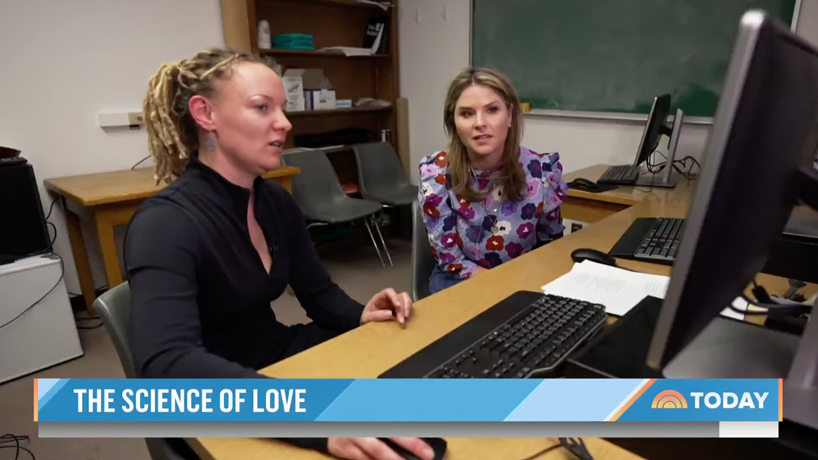
Search Filters

Associate Professor Sandra Langeslag talked to TODAY show host Jenna Bush Hager about the science of love.
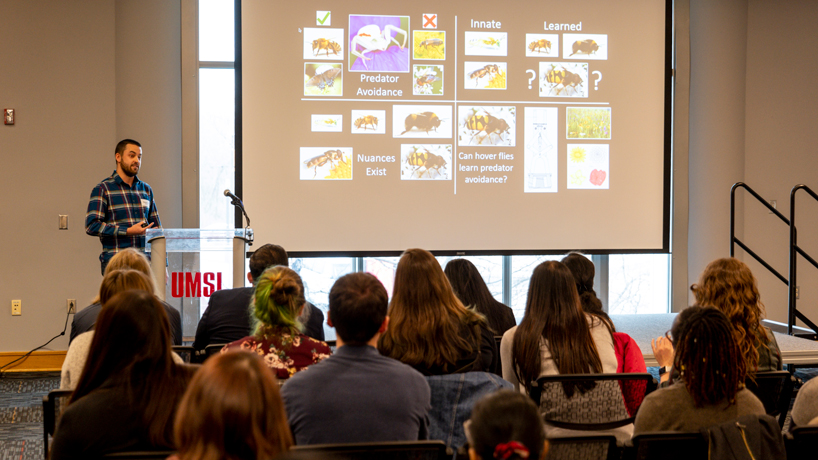
Biology PhD student George Todd presents his research on hover fly cognitive and behavioral ecology during a Three Minute Thesis competition last week in the MSC.

The rankings were based on factors such as acceptance rates, affordability, graduating class sizes, retention rates, student experience and student outcomes.
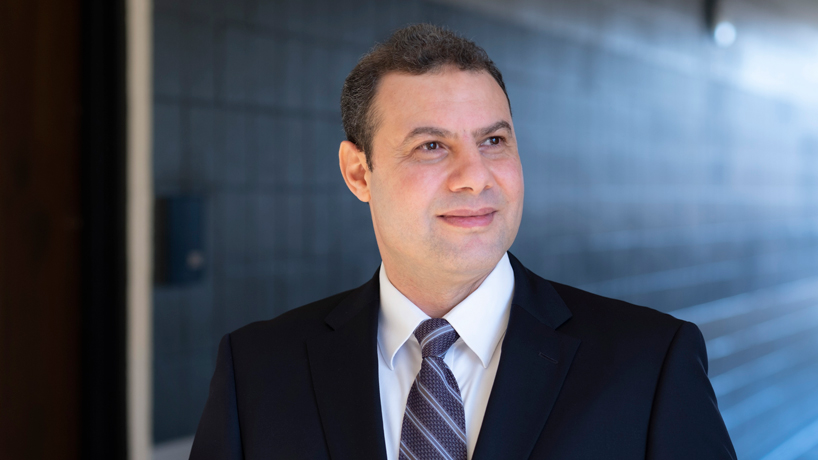
Amer is being tasked with helping create academic programs that serve the workforce development needs of NGA and others in St. Louis’ growing geospatial ecosystem.
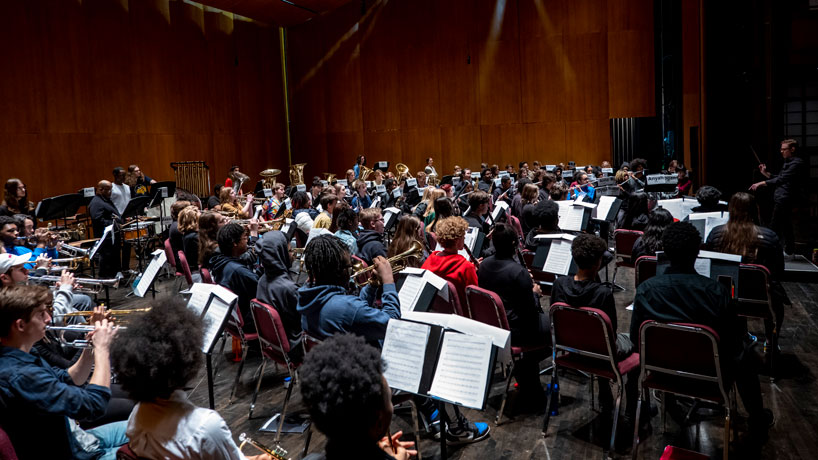
Nearly 900 high school and middle school students from over 30 schools and 15 school districts gathered last week at the Blanche M. Touhill Performing Arts Center.
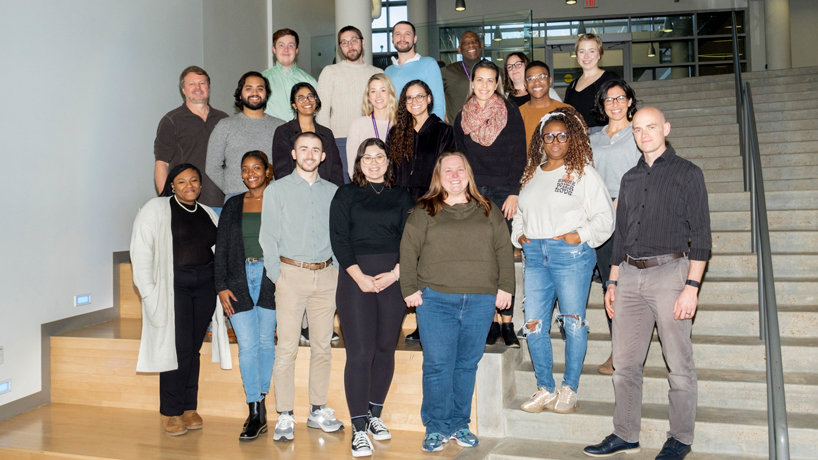
The statement included recommendations such as expanding access to naloxone, clean syringes, drug checking and other harm reduction tools to combat the overdose crisis.
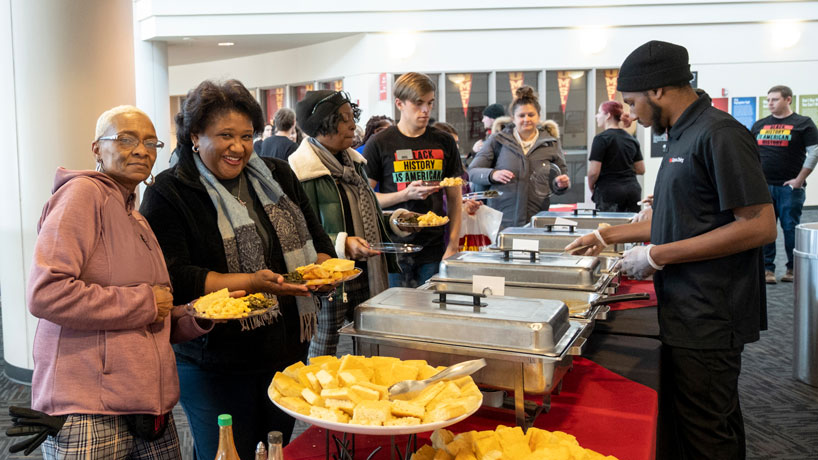
The Office of Student Involvement held its annual Soul Food Celebration as students, faculty members and staff gathered in the MSC.
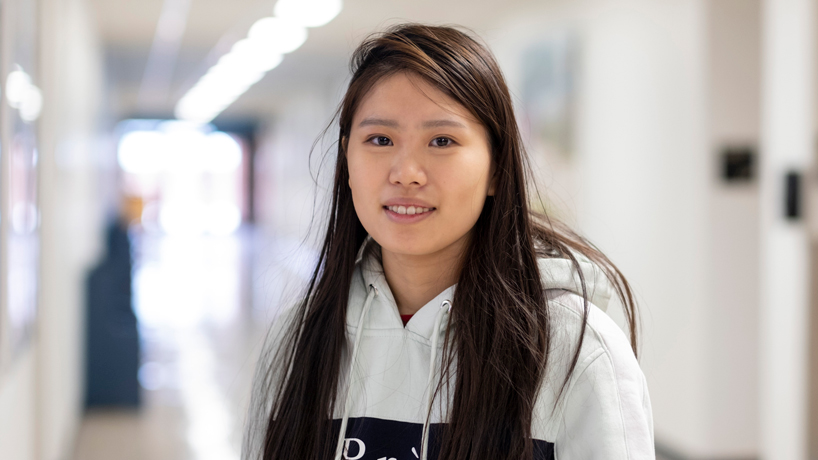
The international relations major will address global trade regulation inquiries, prepare import-export approval submissions and research global trade control issues.
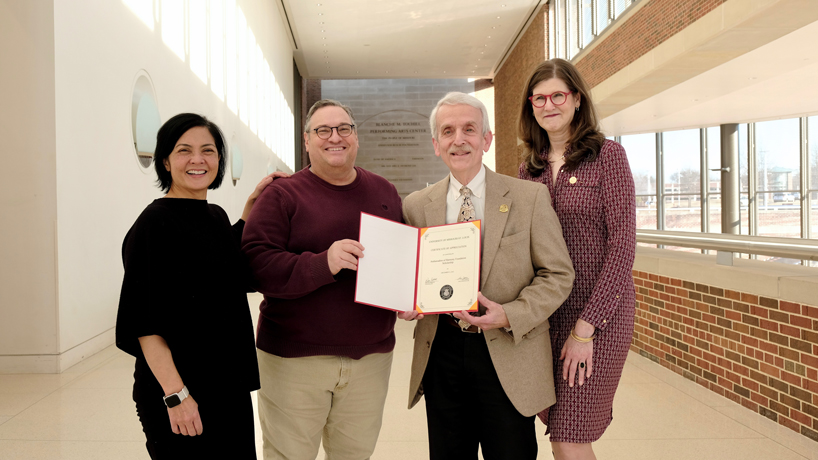
Joanna Mendoza, Jim Henry and Deborah Godwin present a certificate of appreciation to alumnus Michael Rubin for establishing the Ambassadors of Harmony Foundation Scholarship.
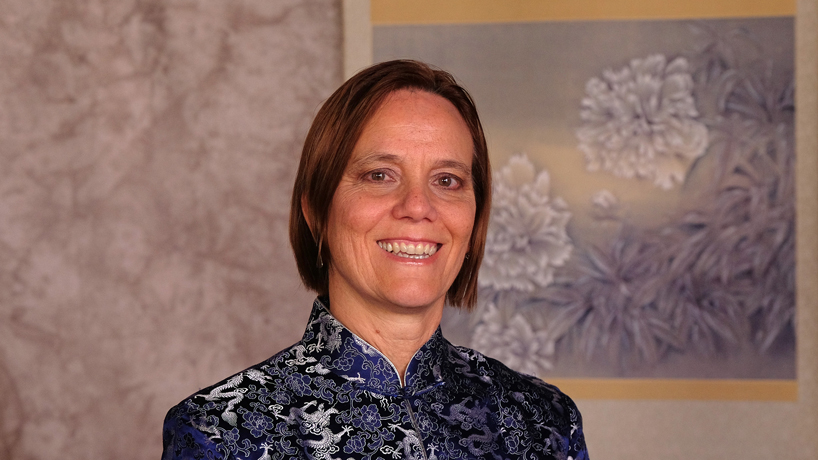
The committee aims to promote understanding and cooperation between the U.S. and China with the belief that a productive relationship serves both American and global interests.